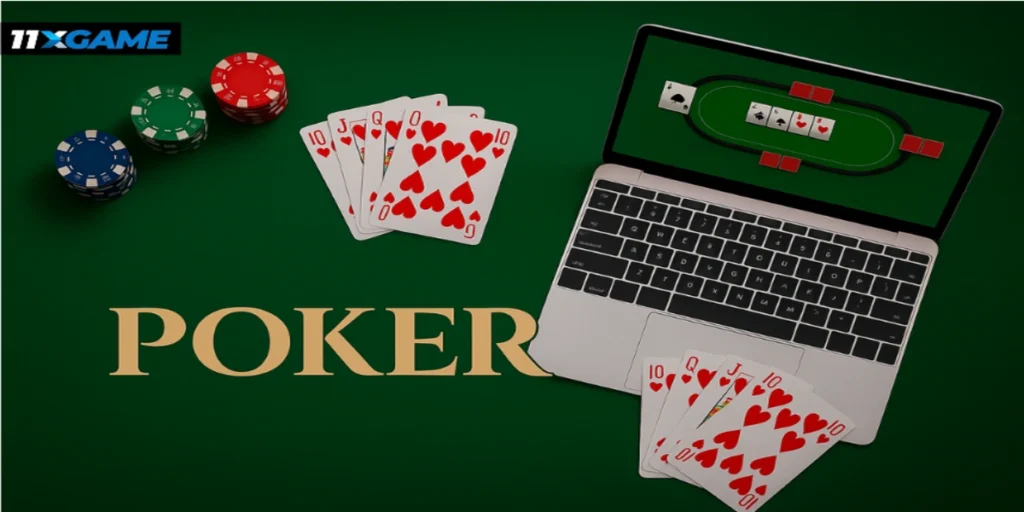Top 5 Winning Poker Strategies for Consistent Results
Poker is more than just a game of chance — it’s a battle of strategy, discipline, and psychological strength. While luck might let you win a hand or two, consistent long-term success in poker comes from following proven strategies.
Many beginners play based on gut feeling or excitement, only to lose chips quickly. The truth is, winning poker players rely on structure and patience. In this guide, we’ll break down the top 5 poker strategies that can help you stay profitable and build long-term success at the tables.
1. Practice Proper Bankroll Management
Bankroll management is one of the most important skills for any poker player. Your bankroll is the money you set aside specifically for poker. Managing it correctly ensures you can survive downswings and keep playing without going broke.
Why It Matters:
Even great players lose sometimes due to variance the natural ups and downs of poker. Without bankroll discipline, a single bad session can wipe out your entire balance.

How to Do It:
- Keep your poker bankroll separate from your personal money.
- Follow the 20–30 buy-in rule — always have at least 20–30 buy-ins for the stakes you are playing.
- Move down to lower stakes if you lose too much of your bankroll to stay safe.
Good bankroll management reduces emotional stress, helps you play with a clear mind, and ensures that you can stay in the game long enough to take advantage of your skill edge.
2. Learn to Select Starting Hands Carefully
One of the quickest ways to improve your game is to stop playing every hand. Beginners often fall into the trap of playing too many weak cards, hoping to get lucky.
Why It Matters:
Strong starting hands give you the best chance of making profitable decisions post-flop. Weak hands lead to tough spots and higher losses.
How to Do It:
- Study a starting hand chart for Texas Hold’em and use it as a guide.
- Play tighter in early positions and only open with premium hands.
- Widen your range slightly in late position (button and cutoff) where you have more information.
Discipline in starting hand selection helps you avoid unnecessary risks and keeps your chip stack healthy.
3. Master Positional Play
Position is one of the most powerful concepts in poker. Being “in position” means you act after your opponents, giving you a crucial informational advantage.
Why It Matters:
Acting last lets you see what your opponents do before you make a decision. This helps you control pot size, decide when to bluff, and avoid overcommitting to weak hands.
How to Do It:
- Play more hands from late positions (button, cutoff).
- Use your position to apply pressure with well-timed raises.
- Avoid calling too many bets out of position — it’s harder to win pots without information.
Mastering positional play is a hallmark of skilled, consistent poker players.

4. Bluff Smartly and Selectively
Bluffing is one of the most exciting parts of poker, but beginners often do it too much or too little.
Why It Matters:
Bluffing at the wrong time can be costly. On the other hand, never bluffing makes you predictable and easy to exploit.
How to Do It:
- Choose your bluffing spots carefully, usually when the board favors your perceived hand range.
- Avoid bluffing multiple opponents at once — focus on one player.
- Mix in semi-bluffs (bluffing with a drawing hand) to increase your chances of winning.
Smart bluffing is about telling a believable story, not just randomly betting big.
5. Stay Mentally Focused and Avoid Tilt
Poker is as much a mental challenge as it is a card game. Tilt — playing emotionally after a bad beat or losing streak — is a common reason players lose money fast.
Why It Matters:
When you’re tilted, you make poor decisions, chase losses, and stop thinking logically.
How to Do It:
- Play in a quiet environment free from distractions.
- Take short breaks between sessions to stay sharp.
- Recognize when you are frustrated or emotional, and step away from the table before it affects your bankroll.
A calm, focused mind leads to better decisions and more consistent results.
This article is for informational purposes only. Always check local laws before playing.
Quick Checklist: Master These 5 Poker Strategies
✔ Manage your bankroll — never risk money you can’t afford to lose.
✔ Choose starting hands wisely and fold weak ones.
✔ Take advantage of position to make stronger decisions.
✔ Bluff only in the right spots with a believable story.
✔ Stay focused, avoid distractions, and play with a clear mind.
Final Thoughts
Poker is a game of skill, discipline, and patience. By following these five proven strategies — bankroll management, selective starting hands, positional play, smart bluffing, and mental focus — you can improve your consistency and maximize your long-term success.
Winning poker isn’t about one big hand — it’s about making small, correct decisions over time. Keep learning, stay disciplined, and you’ll see steady improvement in your results.
Frequently Asked Questions About Poker Strategies
1. What is the most important poker strategy for beginners?
The most crucial strategy is bankroll management. Playing within your limits keeps you in the game long enough to use your skills and recover from inevitable losing streaks.
2. How do I know which hands to play in poker?
Use a starting hand chart to guide your decisions. Play premium hands like AA, KK, QQ, and AK from early positions and add more speculative hands (like suited connectors) from late positions.
3. How often should I bluff in poker?
Bluff selectively. Your bluffs should tell a believable story based on how you’ve played the hand. Random, frequent bluffs usually get called and lead to losses.
“For more educational resources and responsible gaming tips, visit 11xGame to stay informed and safe while enjoying your favorite sports.”






